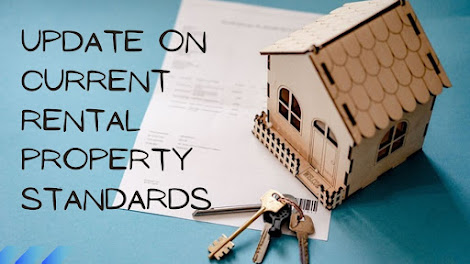Why High Mortgage Interest Rates May Be a Positive for Landlords
It’s no secret that the multiple consecutive increases to the Bank of England (BoE) base rate, currently at 5%, have had a significant and sometimes dramatic impact on borrowing costs, not least for homeowners with variable-rate tariffs. The same applies to landlords, with current rates on buy-to-let mortgages hovering at around 6% for five-year fixed terms and as high as 7% or above for two-year fixed mortgage agreements.
However, while many will welcome the predictions that interest rates will begin to fall as we progress through the year, there are also indications that professional landlords have seen some unexpected benefits.
Demand for quality rental properties has continued to be incredibly high. The strained
mortgage market has generated a reluctance to buy while rates are high or sell
when the housing sector has begun to cool. Many prospective buyers have put
their plans on hold, adding to the ever-growing need for more rental
accommodation.
Changes
to the UK Rental Market in 2023
There are
numerous factors at play that have impacted the rental sector, from the rising
cost of living to the interest rates we’ve mentioned. Another element is that
many mortgage lenders have started removing products from the market altogether
or introducing products for new borrowers with interest rates multiple times
higher than previously advertised.
Housing
Market Statistics
· The supply of private rented accommodation has grown by only 1% in
the last seven years, while record-high immigration and employment levels have
contributed to surges in demand. Great properties in prime locations are let
faster, and for more, with discretion about the tenants a landlord chooses to
rent to.
· Inflation has cooled slightly alongside the property market.
Houses are appreciating slower, with which reporting annual average growth of
3.5% – a dip from previous market peaks in November 2022. Although that is
unlikely to impact landlord portfolios, residential sellers are listing fewer
properties, expecting to achieve a better value once the economy has stabilised.
· High mortgage rates, or the lack of available products, have deterred many buyers, choosing to remain in rented accommodation until the cost of borrowing becomes more manageable.
Overall, the Office for National Statistics (ONS) reports that in the year to March 2023, private rental prices increased by 4.9%, with landlords experiencing very low vacant periods and sustained income growth.
Demand
for Private Rented Housing
The
complexity of the economic environment means that first-time buyers are
particularly less inclined to purchase their first property. High mortgage
costs are part of the puzzle. Still, another is that higher living costs, often
not matched with wage growth and higher mortgage repayments, make it
challenging to pass lender affordability assessments.
Regardless of
the rent a tenant is currently paying, mortgage lenders need to assess their
income, outgoings and existing debts to comply with responsible lending
regulations.
Most will
limit the borrowing they are prepared to extend to around four times the
applicant’s annual income. In some cases, they can offer a higher multiple –
usually if the applicant is considered very low risk and has a strong deposit
and healthy credit score.
Interest
Rates and Mortgage Affordability
A first-time
buyer purchasing a home worth the current UK average house price of £286,489,
as of April 2023, would need a deposit of 10%, or £28,649, and a salary of
£64,460 – over twice the national average salary. Joint applicants would need
to each have a salary of £32,230 to qualify for this level of borrowing, some
4% above the average of £30,992 based on ONS figures.
Although
wages grew 6.6% from December 2022 to February 2023, this also remains far
below the most recent 8.7% inflation figure. Most households have less disposable
income, making it more difficult to save a sufficient value to use as a
deposit.
All of these
financial aspects mean it is harder for people to buy properties, adding to the
demand for rented housing and the ongoing increases in average rental prices
and yields.
Generating
Stable Rental Portfolio Profits During Economic Turbulence
Many landlords are looking at ways to maximise
the performance of their property portfolios, ensuring they present properties
that attract reliable tenants prioritising excellent housing standards and the
ability to remain in rented accommodation – often as they save towards a
deposit.
Previous statistics show that recession and
inflation normally trigger greater interest in renting. Where there are
potential opportunities to grow rental portfolios as house prices begin to
slow, it could be an optimal time to buy, the higher costs of mortgage
borrowing notwithstanding.
Long-term investments may become more
profitable due to sustained positive rental yields and future appreciation,
especially for landlords and investors with the capital to purchase properties
without relying on financing.
Future
Projections for the UK Rental Sector
Property experts are tentatively forecasting
that once the current volatility calms, the housing market will return to
higher rates of growth.
Where some landlords have chosen to exit the
market to avoid exposure to higher borrowing costs, usually where a fixed-term
buy-to-let mortgage is due to end, this has also been to the advantage of those
with ongoing portfolios. A smaller pool of properties is available to a growing
number of renters, resolving potential issues such as price pressures and
accepting less satisfactory tenants to fill a vacant property.
Although care is necessary when deciding
whether to introduce higher rental prices within an existing tenancy, there is
often the scope to market a vacant rental home at a higher than previous value
based on current market averages.
There are also several ways for landlords to
manage rental property costs, such as ensuring any borrowing products are on an
interest-only repayment basis to mitigate the monthly cost of borrowing and
implementing insurance coverage to safeguard against late payments to alleviate
the potential impacts on cash flow.
For more information about the right strategic
Find
a property to rent in Chichester decisions based on your portfolio and
insights about the ongoing effects on the rental sector, please get in touch
with the experts at Tod Anstee for
further guidance.



Comments
Post a Comment